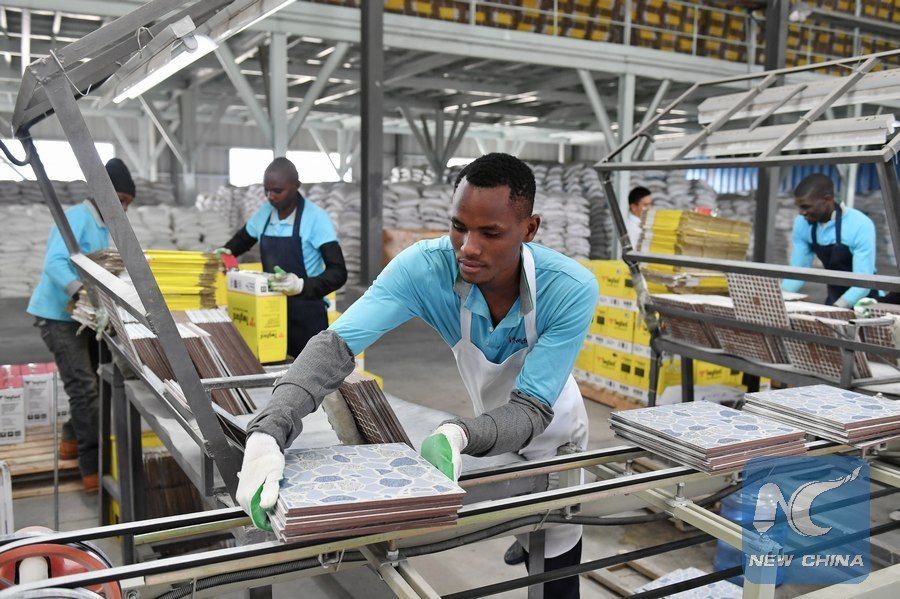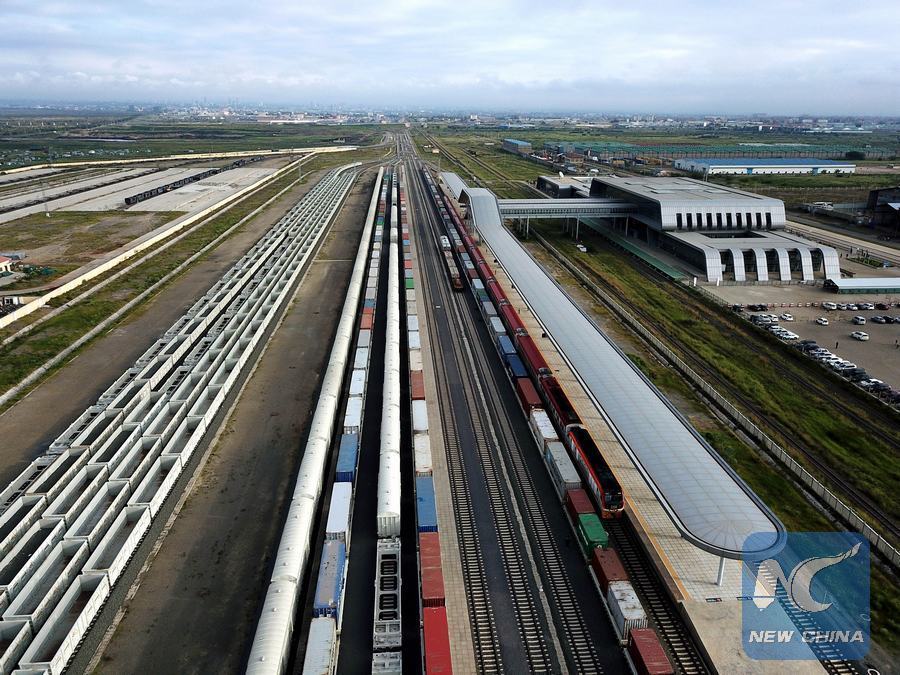
Workers go about their work on an assembly line at Twyford Ceramics, a Chinese tiles manufacturing company, in Kajiado County of Kenya, May 12, 2017. (Xinhua/Sun Ruibo)
NAIROBI, April 14 (Xinhua) -- Kenya should embark on a strategic engagement with China in order to mutually benefit from the Belt and Road Initiative (BRI), experts told Xinhua.
Bitange Ndemo, senior lecturer of the School of Business at the University of Nairobi, said that unlike Ethiopia and South Africa, Kenya lacks a coherent strategy and thus is unable to fully take advantage of the initiative which features development and expansion of overland routes including railways and roads.
Kenya is a party to the Belt and Road Initiative. A clear manifestation of this partnership is the establishment of the modern railway line along the Northern Corridor linking the very busy port city of Mombasa to capital city Nairobi.

Photo taken on June 3, 2018 shows the Nairobi Terminus of the Mombasa-Nairobi Standard Gauge Railways (SGR) in Nairobi, Kenya. (Xinhua/Wang Teng)
The railway is currently being extended to Naivasha, a major economic zone in production of flowers in the country.
Ndemo, a former permanent secretary in the Ministry of Information, Communications and Technology told Xinhua on Friday evening that a strategic engagement will foster progressive growth in both countries with citizens greatly benefiting in terms of accessing markets for locally manufactured products.
Judson Nyabuto, investment expert with Surge Infrastructure Development Company said that a strategic engagement between the two nations would unlock financing options for infrastructural developments in the East African nation.

Aerial photo taken on June 3, 2018 shows trains stop at the Nairobi railway station in Nairobi, capital of Kenya. In the past five years, China and African nations have deepened political mutual trust, mutual assistance in development and mutual learning in visions, and made concerted efforts in building the Belt and Road and a closer China-Africa community with a shared future. (Xinhua/Wang Teng)
The mutual framework would result in manufacturing or improving locally available materials and products for use in development and expansion of overland routes, said Nyabuto, adding that priority should be on catalyzing local economy by adopting various favorable methodologies.
"The key focus should be on supporting the local economy through use of locally available materials, introducing technologies of value addition and transfer of skills to the locals," Nyabuto told Xinhua.

